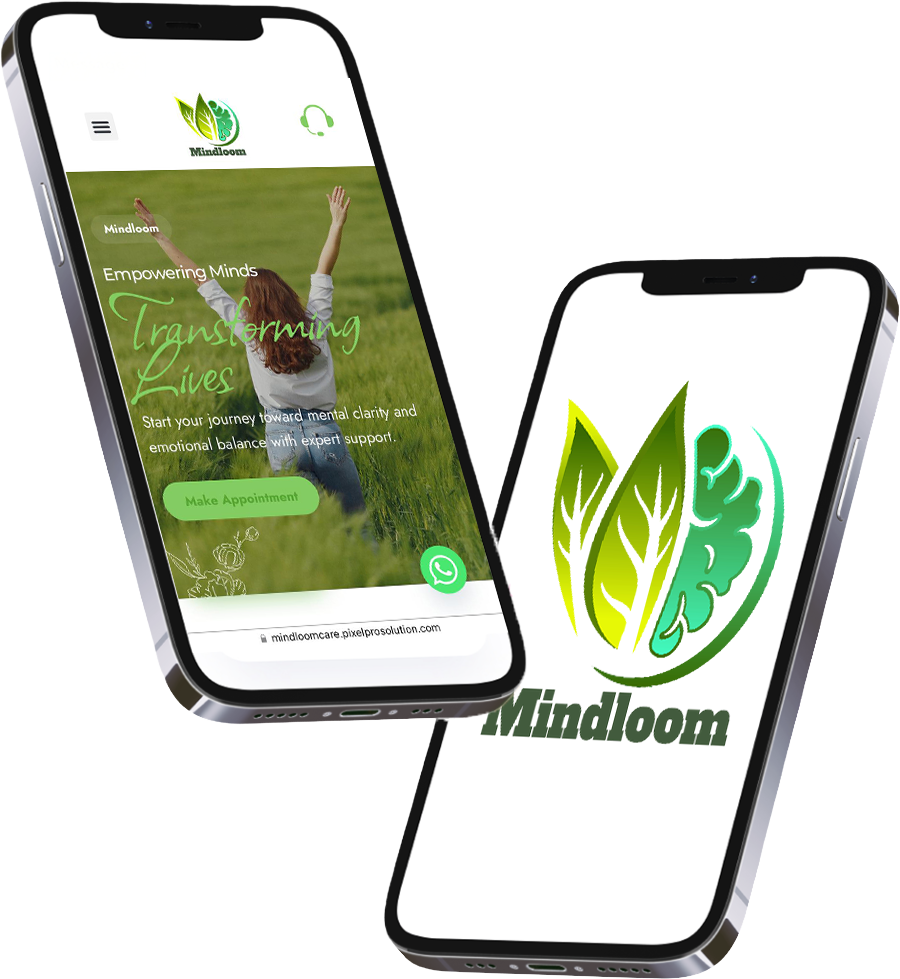
In our modern, high-pressure world, it’s increasingly common for people to seek comfort in substances or repetitive behaviors to manage stress, pain, or unresolved emotional wounds. While these coping strategies may provide momentary relief, they can gradually develop into the deeply rooted cycle of addiction.
At Mindloom, we view addiction not as a personal failing, but as a complex psychological response to inner distress. Recognizing this allows us to approach recovery with empathy, evidence-based knowledge, and practical tools. In this article, we’ll explore the psychological roots of addiction, the emotional cycles that sustain it, and why genuine healing is an inside-out process.
Addiction: More Than a Bad Habit
Addiction extends beyond drugs or alcohol; it can include behaviors like compulsive eating, gambling, excessive gaming, or endless scrolling on social media. What may start as a harmless habit can, over time, disrupt daily functioning, relationships, and emotional health-revealing a deeper struggle beneath the surface.
From a psychological standpoint, addiction is closely linked to the brain’s reward circuitry. Pleasurable experiences trigger the release of dopamine, a neurotransmitter that signals satisfaction and motivates us to repeat the behavior. However, repeated exposure to intense stimuli-whether substances or behaviors-can hijack this system. The brain begins to crave these experiences, often at the expense of other aspects of life.
This creates a self-perpetuating cycle
•Emotional discomfort or stress
•Use of a substance or behavior for relief
•A brief sense of escape
•Guilt or negative consequences
•Increased stress
•Repetition of the cycle
Over time, what began as a choice becomes a compulsion, driven by the need to feel “normal” rather than to feel pleasure.
The Roots of Addiction: Why Do People Become Addicted?
Addiction rarely has a single cause. Instead, it emerges from a blend of factors, such as:
•Unresolved trauma (including childhood neglect, abuse, or significant loss)
•Chronic stress and relentless life pressures
•Underlying mental health conditions (like depression, anxiety, PTSD, or ADHD)
•Low self-worth or difficulty managing emotions
•Influence of social circles and environmental stressors.
In many cases, addiction is a symptom of deeper pain and a way to numb feelings that seem overwhelming or inescapable. Whether it’s a student overwhelmed by expectations, a professional battling burnout, or a parent carrying the weight of past trauma, addiction often serves as a mask for unhealed wounds.
What Does True Recovery Involve?
Recovery is not simply about quitting a substance or behavior. Genuine recovery is about transformation and reshaping the way we think, feel, and relate to ourselves and others.At Mindloom, we believe recovery means;
•Uncovering the underlying reasons for addictive behaviors
•Learning to manage emotions in healthier ways
•Rebuilding relationships and trust
•Creating a purposeful, fulfilling life that doesn’t require escape
•We use a range of evidence-based approaches, including:
•Cognitive Behavioral Therapy (CBT): To challenge and change unhelpful thought patterns
•Motivational Interviewing: To strengthen personal motivation for positive change
•Trauma-Informed Therapy: To gently address the emotional wounds underlying addiction
•Mindfulness and grounding techniques: To foster present-moment awareness and self-connection
•We also emphasize the importance of community and support-healing is rarely a solitary journey. Family, friends, peer groups, and therapeutic communities are vital for sustained recovery.
From Shame to Self-Compassion
Addiction often flourishes in secrecy and shame. One of the most powerful shifts in recovery is moving from self-judgment to self-understanding. It’s about recognizing the pain behind the behavior and choosing to heal, rather than blaming oneself.
We help our clients:
•Reframe their story-from feeling powerless to embracing resilience
•Cultivate self-compassion and forgiveness
•Set healthy boundaries for themselves and others
•Live in alignment with their deepest values and goals
•Recovery is rarely a straight path. There may be setbacks, doubts, and emotional ups and downs. But these are not failures-they’re part of the process of growth and healing.
You Are Not Alone: Hope and Healing Are Possible
The journey out of addiction is personal and courageous. It calls for honesty, vulnerability, and the willingness to rebuild from the inside out. Most importantly, it requires hope.At Mindloom, we are committed to walking alongside you at every stage of your recovery. Whether you’re just starting to question your relationship with a substance or behavior, or you’re ready to take concrete steps toward change, we’re here to support you. Addiction does not define you. It is an experience, not your identity. And recovery is not about achieving perfection-it’s about making progress, finding purpose, and embracing peace.
(Team of Addiction Therapists
Mindloom Care)



